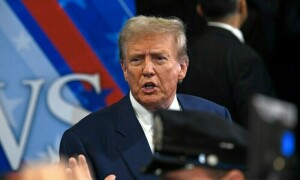In political science, economic voting is a theoretical perspective which argues that voter behavior is heavily influenced by the economic conditions in the country at the time of the election. According to this perspective, voters tend to vote more in favour of the incumbent candidate and party when the economy is doing well in its favor than when it is doing poorly and against its interest.
This view has been supported by considerable empirical evidence. There is substantial literature which shows that in democracies across the world, economic conditions influence and shape electoral outcomes. Economic voting is less likely when it is difficult for voters to attribute economic performance to specific parties and candidates.
Such has been the pattern in Pakistan where each party looked for a short term gain at the next election rather than the long term needs of the country and well-being of future generations.
When the PTI government took over the reins of government in 2018, in conformity with the experience of previous governments, it too realised that the fiscal position of the state was so vulnerable that a bailout by the IMF was inevitable. Overwhelmed with the prospect of locked in an IMF programme and thus not being free to do things their way, the government dithered and approached the Fund six months too late - having exhausted all other options. Much damage had been done to the economy in the meantime. And half way through, the government abandoned the IMF program realising that it is hurting its vote bank.
The incumbent government, under the same mindset and objective, has been skirting around the IMF for over a year. This prolonged delay has caused even greater damage with Pakistan moving to the brink of default and economic growth sunk from projected 5 percent to 0.3 percent of the GDP for the fiscal 2022 - 23.
The analyses by leading economists of the country is that Pakistan’s economy is in recession and a default is imminent without International Monetary Fund’s (IMF) assistance. “The government cannot generate additional tax revenue in these testing times. Instead, it has to cut expenditures in the budget,” said Kaiser Bengali while addressing a workshop titled “Budget Reporting” at the Karachi Press Club this week.
He was of the view that there was hope among rulers till two weeks ago that the country would receive new foreign funding but that “has now vanished”.
“It seems the IMF is demanding some political concessions from Pakistan, that’s why the loan programme hangs in the balance.” Terming the rupee devaluation an ongoing phenomenon, Bengali pointed out that a trader opened a Letter of Credit (LC) for import at Rs320/$ the other day compared to the exchange rate of Rs287/$ in the interbank market. “Favourite sectors of the economy may continue to receive tax concessions, while others will pay the cost,” he anticipated.
In the meantime, the IMF stance has further hardened. “Pakistan has to satisfy the IMF on three counts, starting with a budget presented on Friday 9th June, before its board will review whether to release at least some of the $2.5 billion still to be disbursed under a lending programme that will expire at the end of this month and that there was only time for one last IMF board review before the scheduled end of the $6.5 billion Extended Fund Facility (EFF)” stated Esther Perez Ruiz, the International Monetary Fund’s resident representative for Pakistan this week. With only a few days left before the expiry of the current $6.5 billion Extended Fund Facility (EFF) bailout programme, the International Monetary Fund (IMF) has hinted at clubbing 9th and 10th reviews.
Pakistan and the IMF have been negotiating under the ninth review since November and both sides have so far failed to strike a broader agreement on budgetary numbers for the budget. Pakistan has barely enough currency reserves to cover one month’s imports. It had hoped to have $1.1 billion of the funds released in November — but the IMF has insisted on a number of conditions being met before it makes any more disbursements.
Setting aside the IMF for the time being, the government’s focus is to present a budget and maximise political mileage out of it. By all accounts as expected it is a political budget with a short life. The FY 2023 -24, by all accounts, is foreseen as a year of recession and fiscal vulnerability. All ground realities spell out that the revenue generation will come under greater pressure with exports and large scale manufacturing remaining depressed and development expenditures cut. Injection of funds out of foreign and domestic investments is unlikely to happen
Privatisation of loss-making public sector enterprises and radical reforms in the energy sector to effectively deal with the challenge of circular debt may somewhat salvage the situation. But it is a long-term exercise, demanding competence and difficult decisions which are nowhere in sight.
Copyright Business Recorder, 2023
The writer is a former President of Overseas Investors Chamber of Commerce and Industry (OICCI)























Comments
Comments are closed.